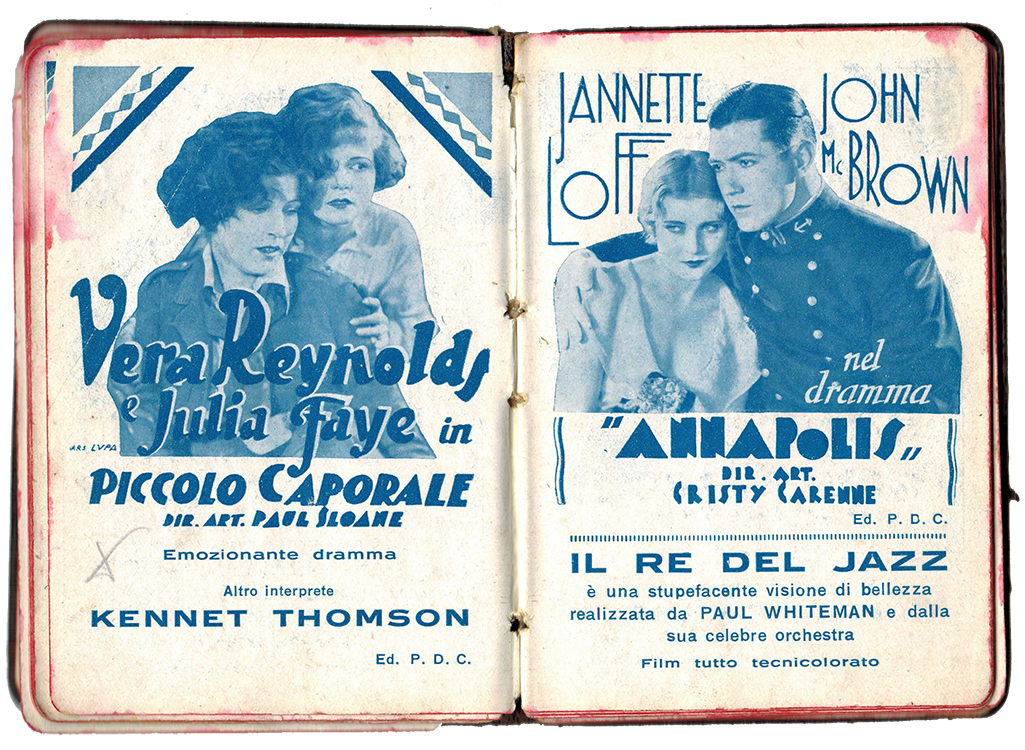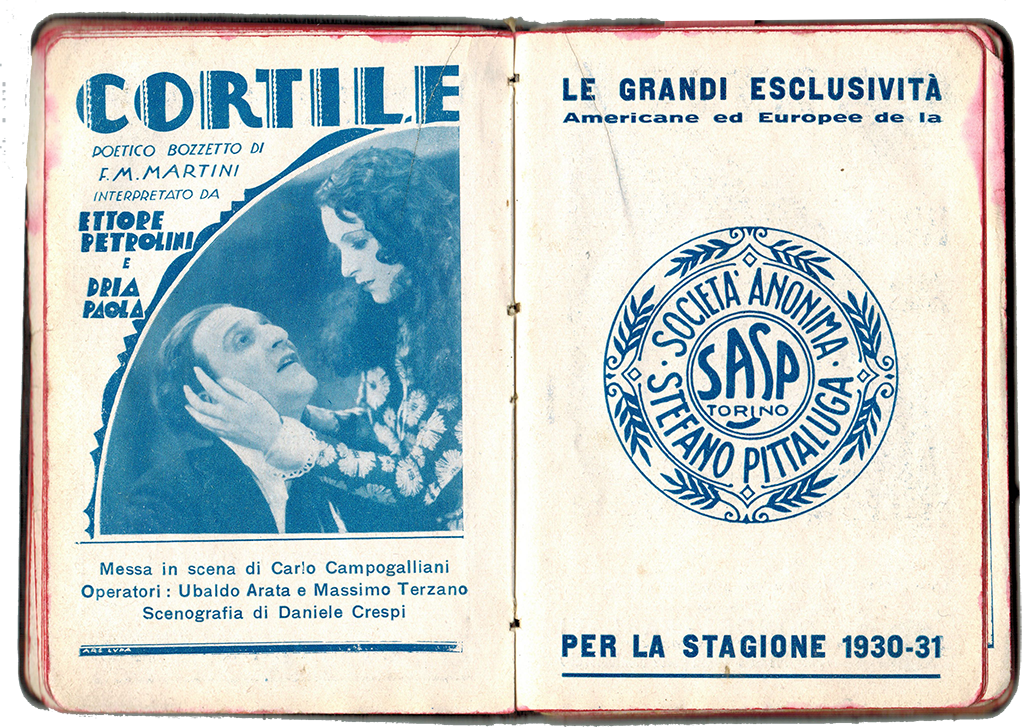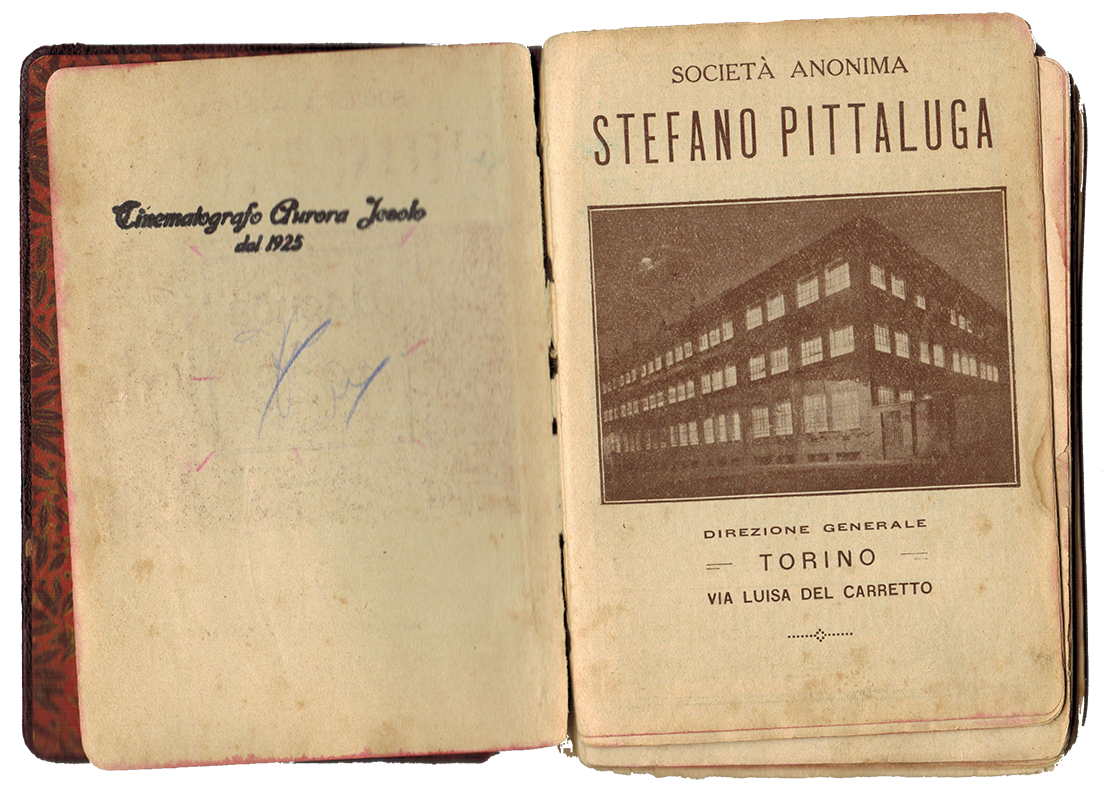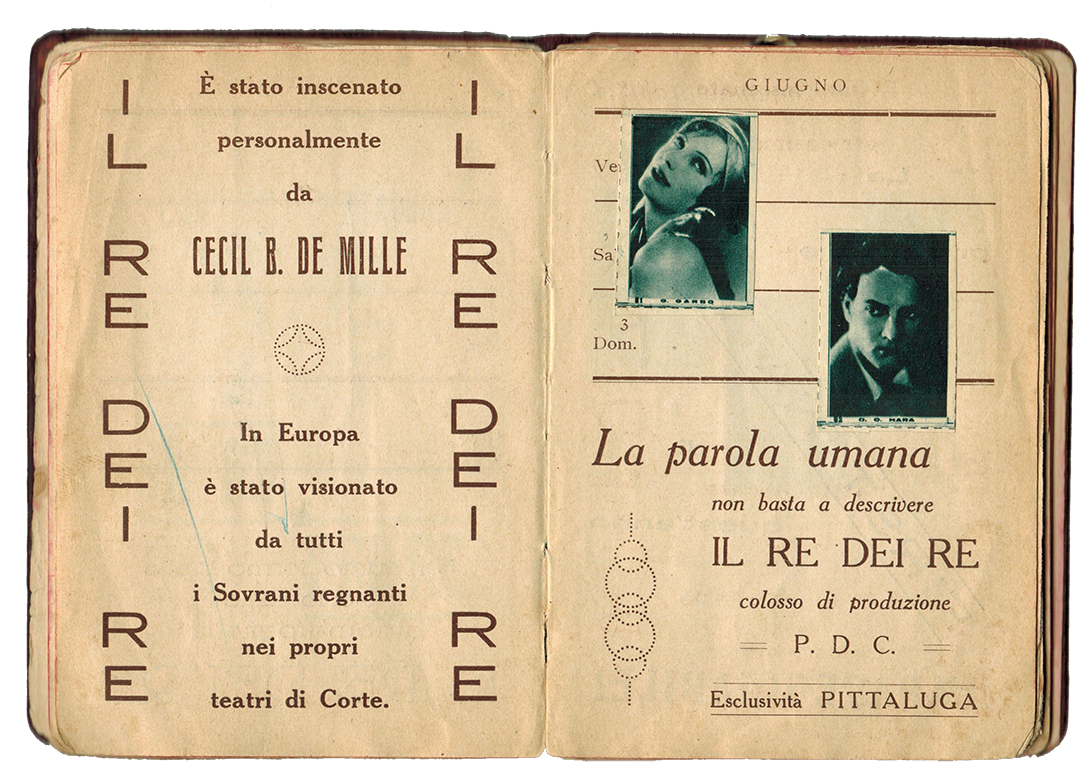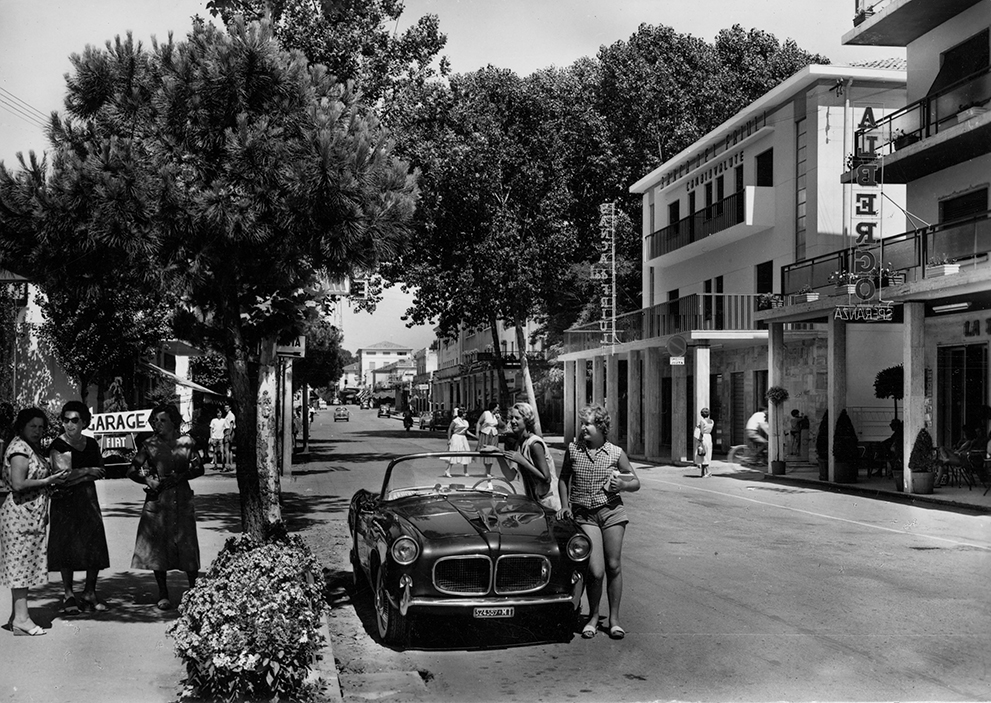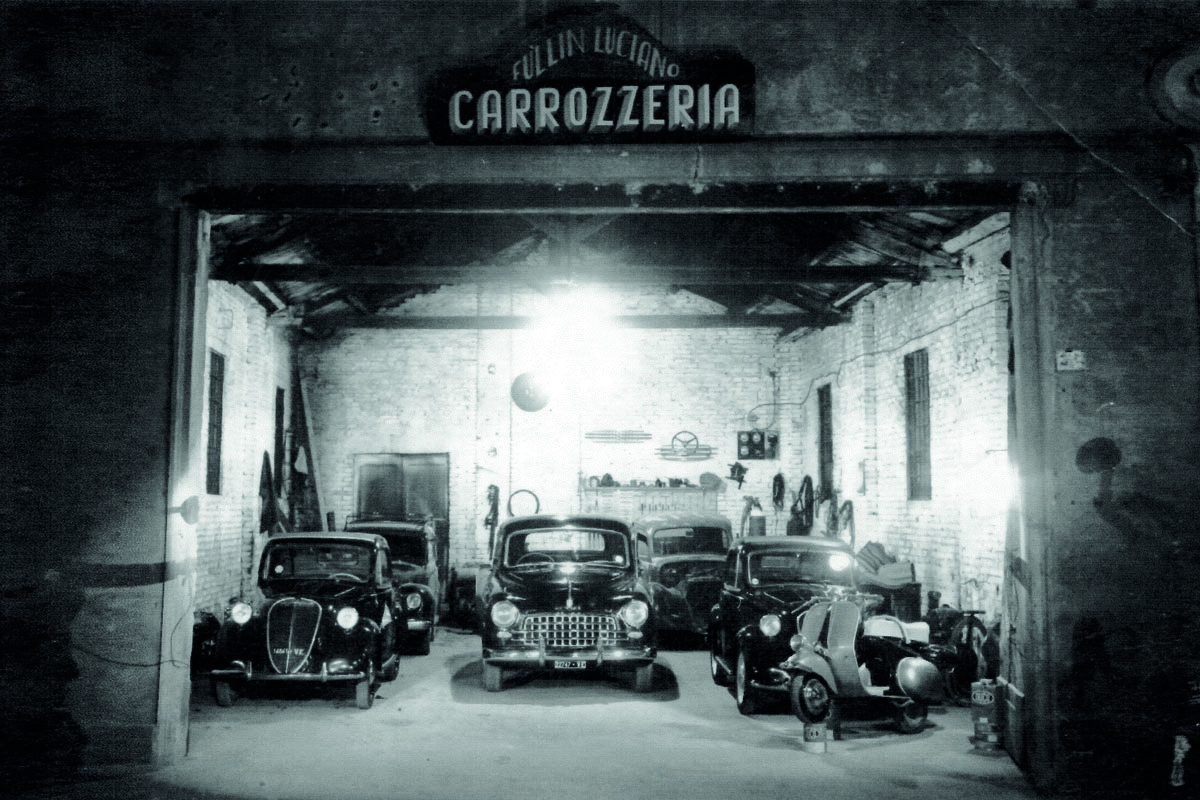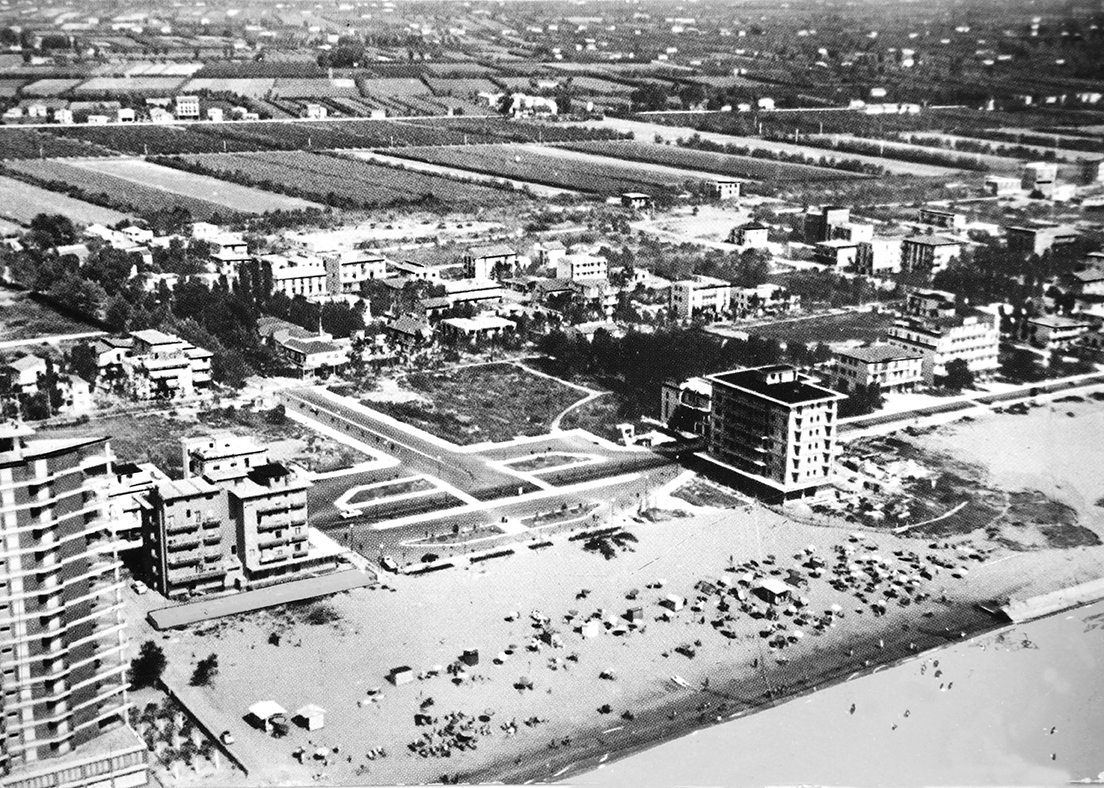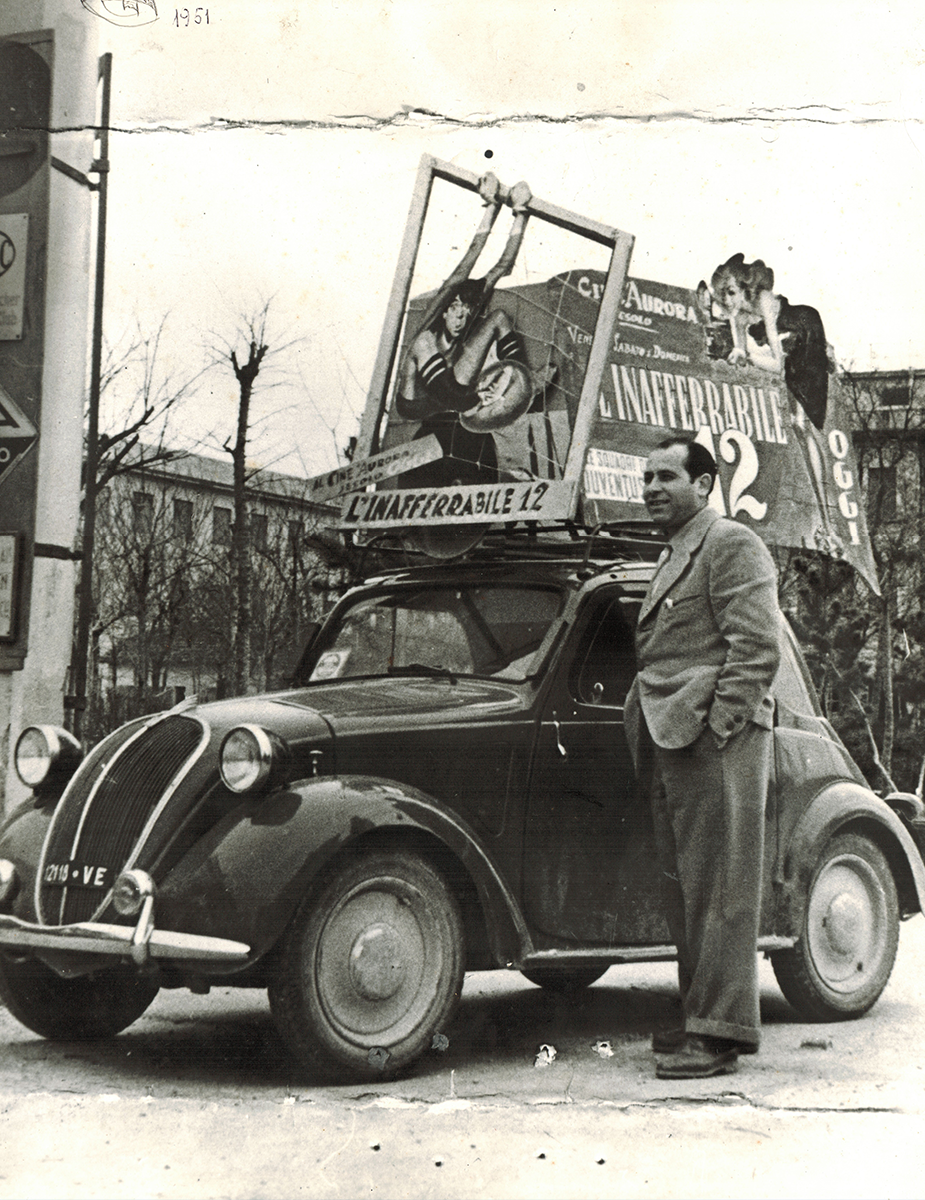
Cinemas in Jesolo
A long story that goes way back
By Giovanni Cagnassi
It was one of the most popular attractions, and the Jesolan with a good memory still remembers it as well as it did today. Even though some time has passed since then, with all the necessary evolutions.
The history of cinema in Jesolo goes back a long way, to the days when there were as many as 11 movie theaters between the coast and the town: those were the golden years of the big screen.
The Aurora cinema, the town’s last major facility, was closed now 19 years ago by Jesolo’s historic family of cinema owners and operators, the Privieros. Then the experience at the Vivaldi for another six years.
Opened in 1925 by the founder of the family, Giuseppe Priviero, and his then 14-year-old son Rocco, who then continued the tradition, the Aurora is still alive in the memories of the townspeople. It stood in Jesolo Paese, on Zuccarini Street, and even today its “vestiges” remain as a reminder of a bygone era that saw movie theaters as protagonists of culture and custom. A time in history when agendas were in fashion from which one could consult the films scheduled in the various theaters. At that time in the early 1930s, the most fashionable actors were stamped and kept in homes like a trophy. Rocco Piviero is still alive in the town’s memories, intent on promoting films with his automobile.
The Aurora endured for decades, and in Jesolo Paese it was one of the most important hangouts in the old town.
Giuliano Priviero, Giuseppe’s grandson, took over along with his sons Alessandro and Massimiliano in the 1980s. And it was still love and passion for cinema experienced also by shrewd and shrewd entrepreneurs, capable of growth and innovation.
In Jesolo Paese, there was the Aurora cinema, and also the shorter-lived Lux cinema, run by the Brunello family, then the balera at the Casablanca.
They were key meeting and socializing places. At the Aurora there were also those who met their girlfriends and future wives.
In ’57 it was renovated, because the year before some stucco had given way, curiously enough during the climactic scene of the film “Il Ferroviere,” directed and starring Pietro Germi, exactly when the scene was being shown in which the train runs over a man on the tracks. Everyone fled the hall at the sight of the ceiling collapsing. Once rebuilt, it had become the most modern cinema in Jesolo and the area, with glass doors and large spaces.
The open-air cinema was another idea of Rocco Priviero: the Olimpia in Piazza Marconi and the Corso halfway down Via Bafile, and then the Eden in Piazza Mazzini.
We are talking about the 1950s. Giuliano then continued the tradition in Piazza Milano, and again behind the library in Jesolo Paese and in Eraclea mare. And then also in San Stino for the pro loco, with the Pascutto. Jesolo saw many prominent figures, such as for example Bud Spencer and the top management of Titanus.
As mentioned, 19 years ago the Aurora closed, then cinema in Jesolo moved to the Vivaldi for a few years. In San Donà, Priviero managed the Cristallo for another four years. “We used to have four,” he recalls, “but we came to have up to 11 cinemas in Jesolo, also run by other entrepreneurs. They even screened films at the hospital, for the sick, twice a week. The nuns recommended to us that they were God-fearing films.”
The constantly evolving world of entertainment, the web age, Netflix, have radically changed people’s habits.
“After the experience at Vivaldi, the first ever at the auditorium,” he concludes, “an era closed. Today cinema is an ‘industry in crisis, people’s habits have changed. The expense would be enormous to have a structure of at least four theaters, captivating. There have been so many proposals and ideas, but nothing has been done. It is definitely a shame.”
Photos and documents from Giuliano Priviero’s private collection
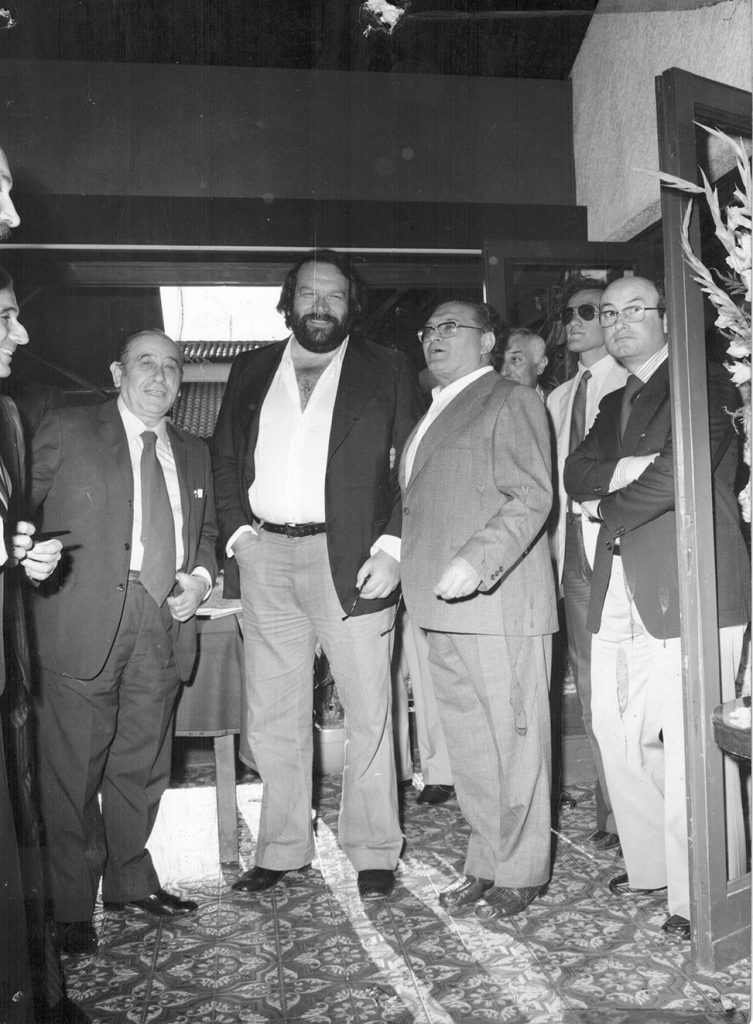
Bud Spencer con i vertici della Titanus a Jesolo
Un’agenda utilizzata nella stagione 1930-1931, dalla quale si potevano consultare i film in programma
Un’agenda del 1928: a quel tempo gli attori più in voga venivano francobollati
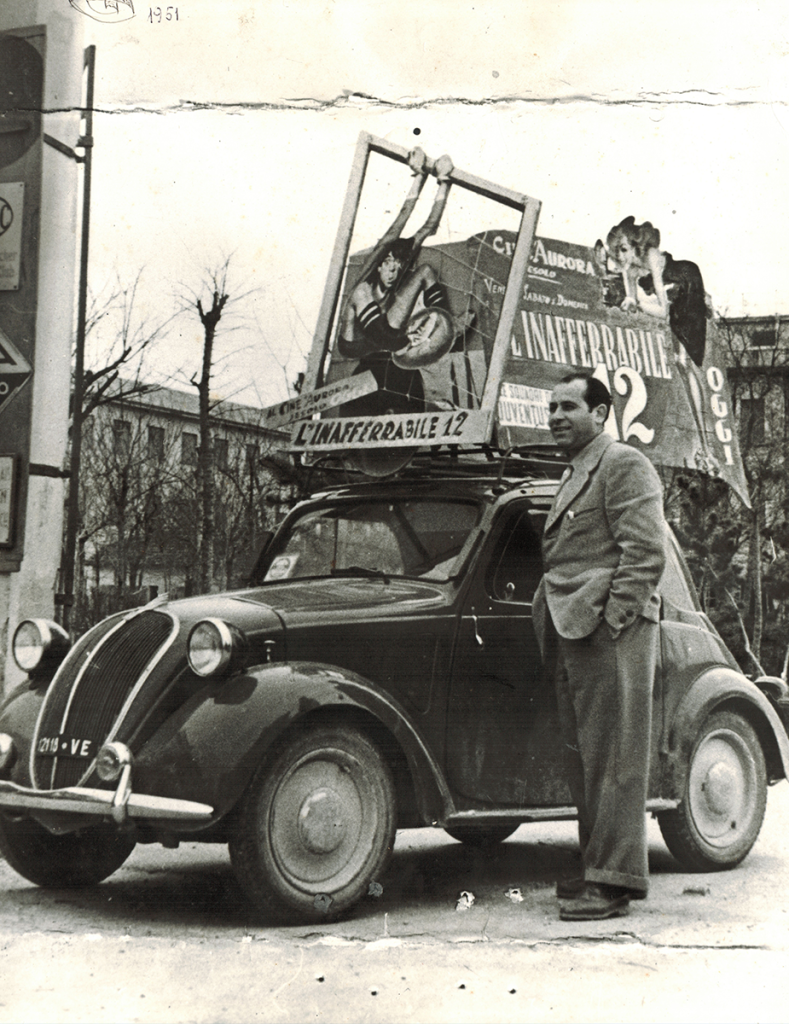
Rocco Priviero, papà di Giuliano, durante la promozione del film "L'inafferrabile 12" con tanto di locandina sopra l'automobile (1950)
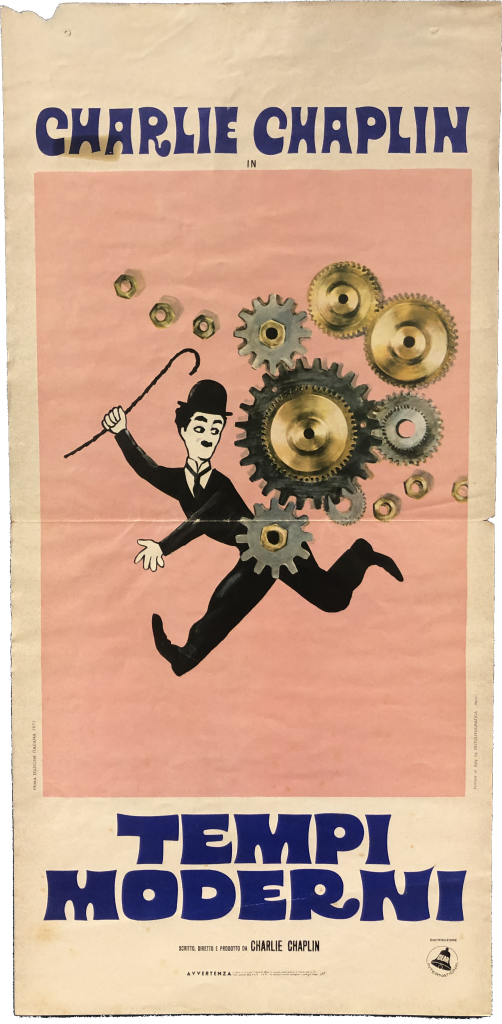
La locandina del film "Tempi Moderni" (1936), scritto, diretto e interpretato da Charlie Chaplin



